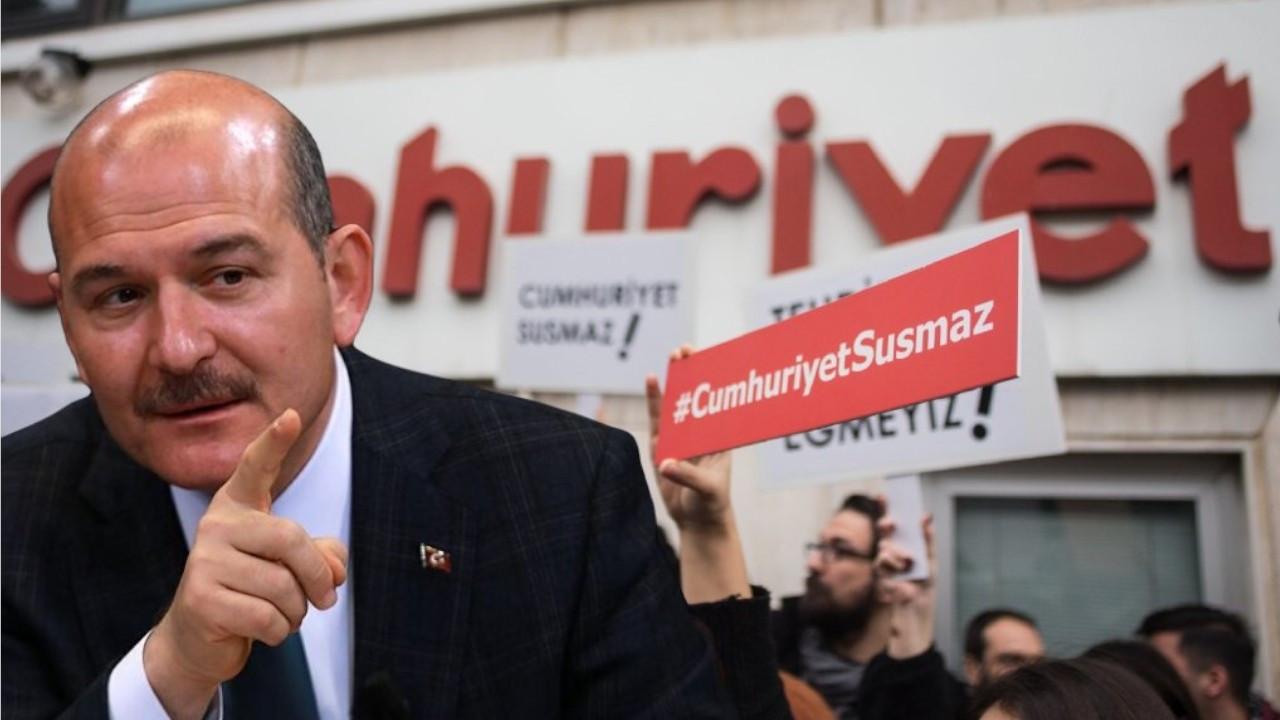Turkish presidency vows measures to 'regulate' foreign funding of media outlets
The Turkish presidency is ramping up measures on media crackdown, signaling upcoming steps to “regulate” local media outlets that receive foreign funds. Presidential communication director Fahrettin Altun said that the measures will “protect the public order and the right of people to receive true news.”
Duvar English
Turkey's presidential communication director Fahrettin Altun has signaled that the government is preparing to take steps to “regulate” the foreign funding of media organizations, in an attempt what he said “to protect the public order and the right of people to receive true news.”
“We will not allow for fifth column activities under new guises. It is obvious that there is a need for a regulation towards media institutions that are operating in our country with the funds of foreign states or institutions,” Altun told state-run Anadolu Agency on July 21.
“In an environment in which some foreign leaders have explicitly announced their intentions and efforts to politically design Turkish politics, we cannot interpret the provision of various funds of any foreign state or institution to the media sector independent of interests and targets in question,” Altun said, vowing to “complete the necessary regulations as soon as possible.”
Several journalists slammed the presidency over its announcement saying these funds are obtained through legal means and the government has been always aware of them.
"Has the Communications Directorate just heard that funds are received from NGOs in the EU, Europe or US? These funds are not received through secret, illegal ways; they are received in line with the laws and the state knows every cent of it. Those receiving and those giving it do not hide it. When has this been a crime?" journalist Güventürk Görgülü wrote on Twitter.
AB'den, Avrupa veya ABD'deki STK'lardan fon alınabildiğini yeni mi duymuş İletişim Başkanlığı? Bu fonlar gizli saklı, kaçak değil, yasalara uygun olarak alınıyor, bankalara yatırılıyor devlet her kuruşunu biliyor. Alan aldığını, veren verdiğini saklamıyor. Ne zaman suç oldu bu?
— Güventürk Görgülü (@guventurks) July 21, 2021
Altun's announcement came after Odatv said on July 21 that a U.S.-based foundation was providing funds for some opposition media outlets in Turkey, pointing the finger to Medyasope and its founder Ruşen Çakır, among others.
Many journalists and people on social media reacted against Odatv's report, saying it had shown Medyascope and other media outlets as targets.
"It is immoralist and dishonorable to show a journalist as a target who has been revealing on his own internet site every fund that he uses, who does not spend any of it for himself and spends all of it to ensure that Medyascope stays independent," journalist Ünsal Ünlü wrote on Twitter, referring to Odatv's mentioning of Çakır in its July 20 report.
Kendi internet sitesinde, kullandığı her fonu kuruşu kuruşuna açıklayan ve bu kaynaktan TEK KÖR KURUŞU kendi için kullanmayıp tamamını @Medyascopetv 'nin bağımsız kalabilmesine harcayan bir gazeteciyi hedef göstermek AHLAKSIZLIKTIR, NAMUSSUZLUKTUR!@odatv https://t.co/JdHf30EQfd
— ÜNSAL ÜNLÜ (@unsalunlu) July 21, 2021
The severity of the Turkish government's repression of the media is such that it has been described by several experts as the “death of journalism.”
The crackdown on press freedom in the country has prompted millions to resort to independent media outlets or social media as alternative ways to receive news.
These platforms provide an essential tool for independent journalists in the country to do their work, many of whom were dismissed from their jobs at media outlets that were either taken over by government-aligned businesses or forcibly closed following the failed coup attempt of 2016.
Activists and NGOs have been slamming the government over its censorship of the media, saying it is obliged to ensure the right to freedom of expression and access to information.

 Erdoğan 'signals formation of social media supervision agency'Media
Erdoğan 'signals formation of social media supervision agency'Media State banks sponsoring pro-gov't newspapers with advertisements, starving critical media of revenuesMedia
State banks sponsoring pro-gov't newspapers with advertisements, starving critical media of revenuesMedia Turkish Journalists' Association tells Interior Minister Soylu to stop targeting, oppressing mediaMedia
Turkish Journalists' Association tells Interior Minister Soylu to stop targeting, oppressing mediaMedia